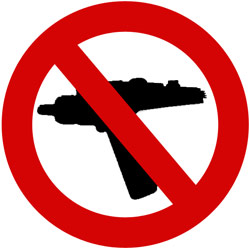If you tried to think of a list of books that didn’t contain any violence, it wouldn’t be a very long one, and if you limited yourself to science fiction and fantasy it would be even shorter. It’s possible to argue that we need violence to make things interesting, or to provide tension—and obviously everybody loves a duel or a murder or a space battle. It’s even possible to argue that you can’t have a plot without violence, or anyway not the sort of plot we like in genre. Science fiction goes head on into changing the world, and how can you do that without breaking a few heads? Would a dark lord feel dangerous without violence? In discussing this with Alter Reiss he said that reimagining The Lord of the Rings without fighting was the same order of thing as reimagining Pride and Prejudice with zombies.
But it isn’t impossible to have books with no violence—Jane Austen wrote half a dozen books in which the most violent thing that happens is somebody carelessly falling down a flight of stairs. When I think of Austenesque books in genre, Mary Robinette Kowal’s Nebula nominated Shades of Milk and Honey (2010) lacks violence in exactly the same way—and it has a plot like an Austen plot, where the resolution is small scale and personal but the world hasn’t changed. Patricia Wrede and Caroline Stevermer do the same thing, introducing battling wizards, threats, and violence in Regency England in Sorcery and Cecelia (1988) (post). I did the same myself with Tooth and Claw. The model is Trollope’s Framley Parsonage, which contains no violence but my version is full of cannibalism and violence because by writing a Victorian novel where the Victorians were dragons I was deliberately highlighting and externalising the violence inherent in the system… in making it a genre book I also made it a violent book.
Which would actually seem like a worse threat to you, if somebody threatened to chop off your head unless you did something, or if they threatened to expose the fact you hadn’t done it to all of your family and friends? It isn’t necessary to use violence to have a plot—shame is a huge motivator, and sometimes it can be a lot more real, especially if the characters always overcome the threats and violence. It’s much more likely that you the reader has been ashamed and embarrassed than that you’ve been assassinated by ninjas, so it’s easier to identify with. Also, you as a reader know that the writer isn’t going to kill off the protagonist half way through the volume, but you don’t know the protagonist won’t be put through agonies of shame and embarrassment. In that situation violence can be actually boring—to me anyway. I know they’re going to triumph and the tension is slackened rather than increased because I just want to get on with it.
You can say it’s not so interesting and what you want isn’t real violence but the stylised violence of fiction, and that’s fine. There’s definitely a place for it. Nobody wants to read books about fluffy kittens making friends with flying unicorns and living without conflict ever after. I just wonder if it’s always necessary to give violence as central a place as it usually gets. Violence can be necessary, but it can also be a cheap way of moving things on by having a man come through the door with a gun, violence in place of plot arising from character.
When trying to think of genre books without violence by the method of looking along my bookshelves and saying “No, no, no…” I noticed the works of Connie Willis. I will not say that she never has an act of violence in any of her fiction, but it’s hard to think of where. (“All My Darling Daughters.” But that’s directly about violence, and boy is it not the fun kind.) Most of her novels are free of the kind of violence you usually get in genre novels. They contain plagues and pandemics that kill people, and it would be hard to say that WWII wasn’t inherently violent, but they are deeply lacking in fights between characters. None of her books have enemies. Bellwether (1996) (post) has some very silly management practices, and To Say Nothing of the Dog (1997) (post) has a bullying organizer. Nobody gets stabbed, shot, or even thumped, yet there’s plenty of tension and people like these books a lot. They tend to have big historical events—the Black Death, WWII, the sinking of the Titanic—as antagonists, and they also tend to have a lot of miscommunication and misunderstanding driving the plot along.
Asimov said “violence is the last resort of the incompetent” and he managed to write quite a few stories without it. The Foundation books have the Mule, but The End of Eternity (1955) (post) doesn’t have any violence. And some of Clarke’s “man versus canal” stories like A Fall of Moondust (1961) (post) are also lacking in violence. I can think of a lot of classic short stories that are problem solving and without violence. In these the conflict comes from problem solving, and the antagonist is the universe. I wonder if that’s the same with Willis—when you have the Black Death or a vacuum leak, human squabbles seem petty.
You don’t always need violence to make things happen. But even so, it’s surprising how few things there are that manage without it. Can you think of any more?
Jo Walton is a science fiction and fantasy writer. She’s published two poetry collections and nine novels, most recently Among Others, and if you liked this post you will like it. She reads a lot, and blogs about it here regularly. She comes from Wales but lives in Montreal where the food and books are more varied.










